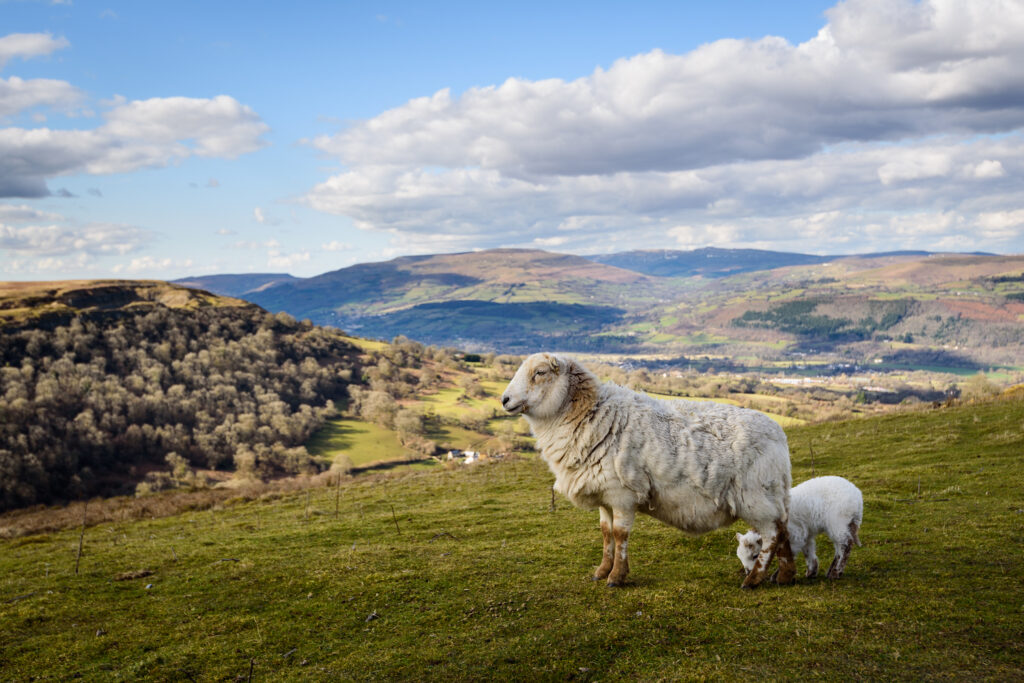Sheep farmers deserve respect, says NSA after article “carelessly attacks” sector
27th November 2021
The National Sheep Association (NSA) said it was shocked and disappointed by “factually inaccurate and damaging” comments made in a recent Daily Telegraph article.
An article written by ‘destination expert’ Chris Moss, has raised eyebrows for suggesting sheep be removed from National Parks, calling them a ‘fluffy white menace’.
NSA chief executive Phil Stocker hit back at the comments, describing them as “both unhelpful and divisive at a time when many in agriculture and the environmental movement are working together to move to an even more multifunctional land use and approach to farming”.
The article was criticised for “ignoring the fact the vast majority of these [National Parks] are in areas where sheep farming is the predominant land use activity”.
Mr Stocker added: “Maybe [Mr Moss] should consider that it is thousands of years of sheep and livestock farming in these areas that has actually made these iconic regions such that people want to designate them as national parks. In fact, sheep farming and its relationship with the Lake District landscape and culture is one of the core reasons why this national park was designated a World Heritage site in 2017.”
“An important role in sustainable food production”
NSA also took aim at Mr Moss’s suggestion that the UK reforest great swathes of the countryside in order to get near national climate goals. Planting forests on peat soils such as those found in many National Parks has actually been shown to have a negative influence on carbon emissions compared to leaving it to native vegetation that has evolved to thrive under natural grazing.
Additionally, rather than sheep ‘poo’ polluting the soil as stated in the article, it forms part of a natural ecological cycle that has gone on for millions of years – sustaining firstly soil life, and then as a result, life above the soil too, NSA added.
Mr Stocker pointed out the importance of livestock manure in vegetable production, as well as the high environmental cost of soya, almond oil and palm oil, compared to sustainable British food production.
“I hope it doesn’t come as too much of a shock but Mr Moss should know that his weekly organic vegetable box is likely in part at least, to be relying on livestock manure feeding the soil and providing nutrients for growth.
“And if he is one of the small number of our population that chooses never to include lamb or mutton in his dishes, then he will very well know that the soya, almond and palm oil that he relies on for his nutrition does little to support the forests in other parts of the world. Britain’s mainly pastoral National Parks in contrast, play an important role in sustainable food production.”
Calls for consideration
Highlighting the common misconception that removing grazing livestock from the countryside will still allow people to enjoy them as they have done for centuries Mr Stocker explained:
“Removing sheep and cattle would soon result in walkers having to carry a brushcutter with them to clear a route through the Molinia grass, bracken, brambles, and gorse that would grow without the grazing animals to keep this at bay – unless of course its recently suffered from a wildfire where uncontrolled burns will kill wildlife, damage peat, and further damage air quality. The images we saw in Australia last year are ones we don’t want to see more of here.”
Concluding, Mr Stocker called for the private landowners who are largely the custodians of the National Parks Mr Moss refers to, to be respected.
“This land is mainly privately owned and integrated into local enterprise and economies, and these communities and their traditional farming methods need to be treated with respect and consideration – not carelessly attacked as done so in this feature.”

